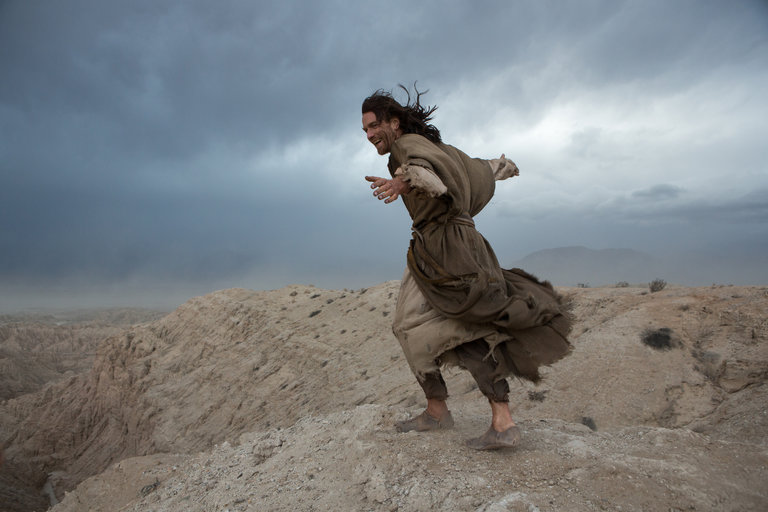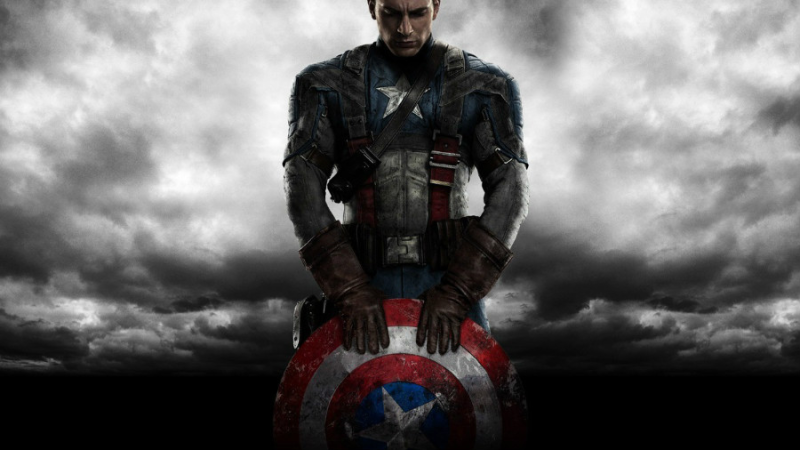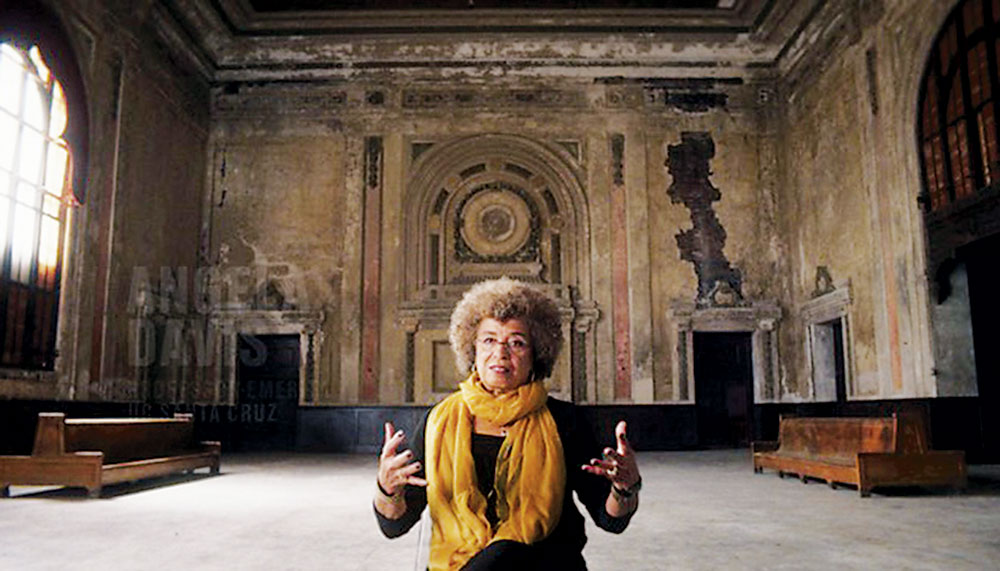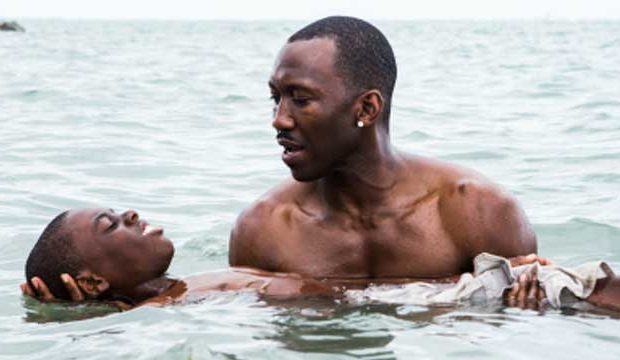
Here we go! A look into some of 2016’s most-talked-about films…
Birth of a Nation. Nate Parker’s film shares a title with D.W. Griffith’s 1915 technical masterpiece, yet inverts the idyllic narrative that championed the victory of white supremacy over the supposed societal dangers of Reconstruction. Where Griffith’s storyline details the violence that ensues when fear drives one people group to inflict genocide on another, Parker’s 21st century vision shows us the violence preceding the redemption of a people who have historically responded to oppression via artistic innovation and spiritual transcendence.
A rare film abundantly flowing with references to Scripture without attempting to create an extended celluloid gospel tract, Birth deftly connects faith and life by addressing the seldom discussed issue of conflicting Biblical narratives during the time of slavery. We see white masters urging Nat Turner to conduct a preaching campaign in which he is only to utilize texts stressing submission to those in authority. Parker counters this propaganda as he gives us scenes (one of very few slavery films to do so) portraying the secret slave churches where the liberation stories of Moses and the Exodus prevailed.
A genuine law-gospel tension pervades while Parker glorifies the violence in the film without justifying it. Nat’s vengeful, bloody rebellion fails (he’s a loser), but is followed by a quieter, still small voice communicating grace. We see among the slain freedom fighters, a surreal image (one of many in the film) of a dangling boy’s corpse bound by a noose, suspended from a tree as a noticeably chromatic butterfly perches on his lifeless body and flexes its wings. Nat has no last words before the executioner inflicts capital punishment – yet his death imparts life to the next generation whose involvement in the Civil War would ultimately give birth to our nation.
Suicide Squad. In David Ayers’ Suicide Squad, The Government (i.e. the Law) reluctantly releases and deploys a band of imprisoned metahuman criminals in order to confront an imminent invasion of inter-dimensional predators. One small problem: criminals can’t be controlled and the Law is all about control, and what can’t be controlled, most of all: the human heart (Jer 17:9). There’s a transformative moment where the plot reaches its necessary pivotal nadir – Rick Flag, the goodie-two-shoes government soldier assigned to monitor the band of rogues finally disables the potentially explosive mechanism he has been using to keep the antiheroes in check. After everyone bears their souls in an abandoned bar and challenges each other to “own their [mess]”, Flag drops the boy scout façade and condescends to identify with the rest of the losers by transparently disclosing his own human weakness – yes, he’s in love with the centuries-old sorceress who only needs to be reconnected with her ‘heart’ (a supernatural relic resembling a voodoo doll) to finalize world domination. Flag follows his time of confession by deactivating everyone’s restraints and declaring they are free to leave if they wish (everyone’s discouraged and ready to disband at this point). This act of grace actually strengthens the team’s resolve to unite against the aforementioned demon-possessed tomb raider whose enchanted powers serve as yet another picture of the Law. Enchantress can see and reveal the deepest longings and anxieties of their hearts… and like the law (Romans 7:8-10), promises she alone can give them all what they secretly desire (stable home lives, reparation of strained relationships, the death of Batman, etc). Ultimately though, self sacrifice mightily triumphs as selfless love transcends the otherwise dastardly nastiness of these morally ambiguous, misunderstood super villains.
Last Days in the Desert. Ewan McGregor gives us a Jesus human enough to be believable without denigrating our Lord’s Divinity. During his 40-day wilderness trial, this Jesus joins himself for a few days with a family in the midst of a very identifiable struggle for many if not all of us – tension between a father and son relative to the son’s anxiety over whether or not he has his dad’s full approval and acceptance. Rodrigo Garcia’s direction and cinematographer Emmanuel Lubezki’s skillful capture of expansive desert landscapes and twilight-tinted horizons facilitate our appreciation of a Jesus who identified with us in the very areas of life that matter. If Martin Scorsese (1988’s Last Temptation of Christ) wanted us to see that Jesus was even tempted to enjoy sex, marry, and experience the ‘normal’ family life, Garcia shows us that this Jesus gets the whole ‘I’m not sure my parents accept/understand me’ thing. We broken creatures crave a God who is truly near us, who ‘gets’ us, who understands our insecurities. Much like his predecessor, Piero Pasolini (Gospel According to St Matthew, 1964), the Christ Garcia portrays is equally the sanctification of the mundane and the vulgarity of the sacred. The apostle John informs that the Word became flesh and lived among us – i.e. He who is holy became common for our sake.
Captain America: Civil War. Admittedly, I missed a lot of the back story critical to fully appreciating Captain America: Civil War–I haven’t seen The Winter Soldier, Ultron, or any of the Iron Man standalones…However, I did greatly enjoy this most recent installment in the legacy of Steve Rogers and had this takeaway: the superheroes in this film reminded me of various so-called Biblical heroes (David, Samson, Elijah, Moses) in that they were so well equipped with supernatural strengths and hi-tech armor, and yet they did not remain impervious to the normal human foibles that plague all of Adam’s descendants (Rom 3:23). We see the family in Civil War unable to guard themselves against the normal sinful fallout of the heart – fear, mistrust, suspicion, confusion over loyalty, double mindedness, and the lust for vengeance.
Ultimately, for all his resolute insistence that the team remain under ‘law’ and supervision by the UN, when the moment of testing came, Tony Starks with all his sophisticated body gear and weaponry could not protect himself from himself – he was unable to rationally keep his angered emotions in check when he discovered the truth about his dad. Thank God we serve a true Hero who surrounded himself with a family of 12 antiheroes more akin to Jacob’s dirty dozen than the traditional Old Testament heroes we tend to venerate. The True Hero of the Scriptures was fully identified with our human frailties, fully clothed in our human nature, super imbued with Divine power, and yet perfectly kept his rational, emotional, and psychological faculties in check… in order to save us from ourselves. “And you will call His name Jesus for He will save His people from their sins”.
13th. No one is guiltless in Ava Duvernay’s provocative and informative documentary ‘13th’ available presently on Netflix. At 140 minutes in length, the film equally indicts post-Civil Rights era Republican politicians and their late 20th century Democratic counterparts for implementing policies that have historically served to functionally invalidate the very legal freedom and full societal inclusion the 13th (and indirectly also the 14th and 15th) Amendment promised liberated slaves immediately following the close of the Civil War.
DuVernay’s film references both the unfortunate popular influence of the imagery contained in Griffith’s Birth of a Nation as well as the competing power of such alternative media as (1) the printing and publication of autobiographical slave narratives penned without censorship as they provided firsthand accounts detailing the horrors of slavery, (2) Civil Rights activists effectively employing the power of the television camera that often exposed the brutal dehumanization of protestors peacefully exercising justifiable civil disobedience while enduring abuse and harassment from law enforcement, (3) and even Mamie Till’s decision to publicize the graphic and gruesome photo of her disfigured teenage son, Emmett whose only crime in 1955 was whistling at a White woman in a Mississippi diner.
And it’s only fitting that a film in which socially conscious hip hop songs punctuate interviews with politicians, corrections officers, professors, and sociologists should conclude with rapper Common (whose Oscar-winning song Glory closed out DuVernay’s previous film Selma) issuing America a literal call to “come to Jesus”. Employing insightful metaphors and appealing to historical sufferings of African Americans, Letter to the Free’s refrain also promises that it won’t be long before freedom comes. The gospel informs us that freedom has come and will come again soon. His name is Jesus and He is the Word – the one true narrative that alone can restore the humanity of both the oppressor and the oppressed.
Moana. There are plenty of law-grace implications and redemptive metaphors in Disney’s Moana. We open with the narration of a creation account replete with the entrance of a main antagonist, the destruction of paradise, and the consequent promise of a coming redeemer – an offspring who will one day restore shalom (sound familiar?). Moana’s father, Chief Tui warns her to never go beyond the reef into the heart of the sea (‘don’t touch the boat’, ‘do not eat from that tree’) while Gramma Tala graciously refuses to restrain the young heroine from peering behind a veil that will answer deep questions about her identity, her heritage, and ultimately her calling to rescue her people from the destructive state of the world they inhabit.
We also meet a supposed demigod, Maui (Dwayne Johnson) whose lust to secure human approval drove him to steal “the heart” (a small pounamu stone possessing life-giving and island-creating power) from the island goddess Te Fiti… thereby setting in motion the present chaos and disorder noted in the aforementioned creation narrative. And ultimately, the bad guy gets redeemed in a move reminiscent of Return of the Jedi, The Lego Movie, Christmas Carol, and The Grinch.
I saw this film on Thanksgiving Day, so TV stations were airing the usual fare including Charlie Brown’s Thanksgiving Special. The Peanuts gang retell the pilgrims’ voyage from England to the new world in which they endured numerous hardships. Of course, this kind of cultural recollection maintains a legendary folklore-like status in the way we celebrate our national history. And yet, we avoid talking about and actually try to deny the horrific tragedy of the Middle Passage in which thousands of Africans died as they involuntarily traveled across the ocean to America.
Moana’s father wishes he had destroyed the boats she discovers in a cave where out of fear, a vast volume of artifacts had been hidden in order to suppress knowledge of their ethnic and national identity. It was deemed too dangerous to pass on to the next generation the truth about who they once were as a seafaring people. We glorify certain narratives critical to our history and yet out of fear and shame, suppress and neglect the more ignoble historical aspects of who we are. The gospel shamelessly records a long lineage of ignoble characters whose bloodline delivers to us a Savior who in turns sheds blood that gives us a very proud heritage. “By your blood, you ransomed people for God from every tribe, and language, and people and nation.”
Moonlight. A coming of age story about a young man who struggles to find a real, organic name despite the dehumanizing labels his peers and the reality of being poor and fatherless in crack cocaine era Miami impose on him. Director Barry Jenkins prefaces each chapter of this tripart narrative with a title card bearing a different name relative to the specific set of challenges and implications inherent in our protagonist’s incremental boy-to-man transition: i. Little, ii. Chiron (his actual name), and finally iii. Black.
Juan is grace – he doesn’t want Chiron to live under the pressure of having to figure out who he is at such a critically young age. He wants to shield and protect this kid from the realities of the broken world with which the little boy is unfortunately already too familiar. Yes, Chiron has seen and experienced too much for a ten year old, but Juan hopes he can at least save the boy from becoming him (which ultimately fails as Chiron takes on Juan’s very physical appearance and drug selling lifestyle when he reaches adulthood). Juan wants Chiron to have a childhood, to be able to just focus on being a kid. He wants him to learn to swim… In a beautifully photographed scene in which the blocking suggests a baptismal ritual, the unsteady cinematography viscerally places us in the water with Juan as he teaches his unofficially adopted son to swim. Exercising his paternal influence over Chiron, he desperately wants the boy to understand that nobody has the right to assign him his identity. It is during this oceanside scene (immediately following the swim lesson) as they sit on the shore pontificating, that we learn the significance of the film’s title.
Hail, Caesar! In the Cohens’ Hail, Caesar! a stark juxtaposition exists between film producer Eddie Mannix’s apparently sincere moral convictions versus George Clooney’s portrayal of a clueless, gullible actor who’s as easily swayed by conspiracy theory propaganda as he is impassioned when delivering lines in a Ben Hur parody film. Mannix constantly avoids participating in the corruption and compromise that runs rampant in the film industry; he genuinely worries about offending Christians with his films; and he wrestles internally over issues that threaten to destroy his personal integrity. As one reviewer noted in his blog, we’re never sure whether or not to take him seriously. There’s a perfect example of acting-within-acting where the veil of fiction nearly transforms into visceral reality. Clooney delivers a speech as his character beholds Christ on the Cross in His final moments. He clearly believes in the reality of that moment’s experience and right when his intensity verges on a powerful climax, he forgets his line! He forgets the word… ‘faith’.
This film reminded me that the real farce is our tendency to take ourselves too seriously. That the Cohens intentionally treat characters’ convictions with subtle caricature and satire in this beautiful homage to the golden era of the Hollywood studio system reflects how both sin and grace make us the punchline as we try live out scripts in which we assume our own righteousness… where we are the central protagonists. Plus… the movie has tremendous merit if for no other reason than the scene where at Mannix’s behest priests, protestant reverends, and rabbis argue about the Deity of Christ!
Finding Dory. Finding Dory ultimately portrays a death moment reminiscent of a dark watery womb (cf. Genesis 1:2) as our disoriented heroine believes she has ultimately lost the parents she’s spent the entire film desperately seeking… it is her emotional memory that consequently comes alive at this point. She is disabled intellectually, but her emotional faculties still ‘work’… A life ruled solely by the intellect is akin to ‘law’: hard facts, cold information, pure logic, predictability, control, and self sufficiency. Dory has to die before her emotional mind (i.e. heart) can guide her home – i.e. before she can mentally engage with the recollection of counting the sea shells her parents incidentally laid out for her as their hope of recovering her never died (cf. Luke 15 – the Father’s hope of the son’s restoration exceeded his understanding of his dad’s love). She was home before she had ever been lost… as were we… in Christ.
Finding Dory reminds us that it is our emotional memories that shape and define us… this is where trauma happens (cf. 2 Corinth 1:8). We never forget what we emotionally experience – good or bad… And the good news is a sovereign God uses both in our redemption as He comforts us with the knowledge that one day the mind and the heart will harmoniously and healthily function as they should. He will lead us home to Himself.
Rogue One. Rogue One restores to us the iconic experience of watching and a classic, authentic Star Wars film. Gareth Edwards’ intertestamental chapter in the beloved saga may lack the John Williams score, the opening crawl, and the standard wipes and irises transitioning us from one shot to the next… but it still allows us to sink down in plush seats in darkened theaters while we lose ourselves in an engulfing, epic other-worldly realm we desperately wish existed.
Edwards retains the darker tone of the Force Awakens (minus the ambiguous plot holes and esotericism) while avoiding the cartoonish buffoonery and CGI overkill that ruined the prequels. The film has a more stripped away and organic texture that reminds us of A New Hope and yet returns to the psychological introspection that characterized Empire Strikes Back.
In Rogue One, good guys and bad guys alike exhibit low anthropology as they set out to either prove themselves against accusations of incompetence or embark upon sacred missions in an attempt to self atone for blurring the distinction between right and wrong. Morality remains relative as hero-villains have had to make difficult decisions in the name of seeking a higher good. Twice, characters remind us that “rebellions are built on hope” and to that end, a main protagonist’s attempt to absolve himself of having compromised his moral convictions indirectly provides the hope that inspires The Alliance (itself fractured between a conservative wing and an extreme militant offshoot) to resist the Empire. Militants perish, traitors are executed, misfits unite to engage in epic space battles, heroes sacrifice themselves…the galaxy is saved… or rather will be (the last shot reassures us).
Thankfully, because of Christ, we don’t have to perform heroic acts or even good deeds in order to atone for our weaknesses and failures. Christ identified Himself with our infirmities, assumed our guilt and gave us a hope that empowers us to fight against the world system – that same hope works through a roguish church to save more than the galaxy. Christ, who is our hope (1 Tim 1:1) has saved the entire universe.

COMMENTS
2 responses to “A 2016 Movie Wrap-Up”
Leave a Reply






















This is awesome! Thanks Jason!
Terrific list. Thank you, Jason. I think I’m going to have to see Last Days in the Desert…